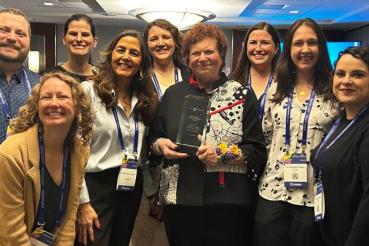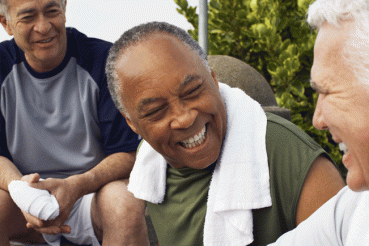The further we get from the boundless energy of childhood, the quicker we seem to run out of steam.
But getting older doesn't automatically sideline you from being active.
Usually, our energy declines because of normal changes. Both genes and environment lead to alterations in cells that cause aging muscles to lose mass and strength and to become less flexible. As a result, strenuous activities become more tiring.
These cellular changes also limit the heart muscle's pumping ability, reducing the flow of oxygen-rich blood that provides energy to the cells.
Though no one stays as energetic as they were in childhood, you can delay the decline in energy and stay active as you age. Here are some tips that can help bolster your energy level — at any age:
Improve your heart health
Aerobic exercise raises your heart rate. Over time, that strengthens your heart muscle so it can pump more blood, delivering more oxygen and nutrients to muscles for energy, which can counteract the natural decline of the heart's capabilities.
Take control: Brisk walking is a good start. Work up to bicycling, swimming or another aerobic activity. Aim for the recommended 150 minutes of moderate intensity cardiovascular activity each week.
Slow muscle loss and stimulate muscle growth
Strong muscles react faster and have more endurance. Because aging muscles lose mass and strength, it's important to maintain or even build muscle strength as you grow older with regular strength training exercises, such as weightlifting.
Take control: If you're just starting, try lifting a can of soup. As that becomes easier, move on to heavier weights or a weight machine. Just make sure to have a trainer or other professional show you the proper form for each exercise so you don't risk injury.
Because aging muscles lose mass and strength, it's important to maintain or even build muscle strength as you grow older with regular strength training exercises, such as weightlifting.
Maintain muscle elasticity
As your muscles naturally become less flexible with age, stretching exercises are crucial to help you maintain the flexibility your body needs to stay active.
Take control: Be sure to warm up for a few minutes before stretching — try jogging in place and pumping your arms. Then, slowly move into your stretch as far as you can without pain. Hold it for 10 to 30 seconds. Repeat your stretch and try to stretch further
Rest up
You can also get an energy boost from something as simple as sleep.
Adults need seven to eight hours of sleep each night for the body to release enough of the hormones that help build and repair muscles. And research suggests lack of sleep decreases the body’s production of glycogen, a carbohydrate that is stored for energy use during physical activity.
Take Control: If you're having trouble sleeping, talk to your doctor. You might need to see a sleep specialist, who can help improve the duration and quality of your sleep.




